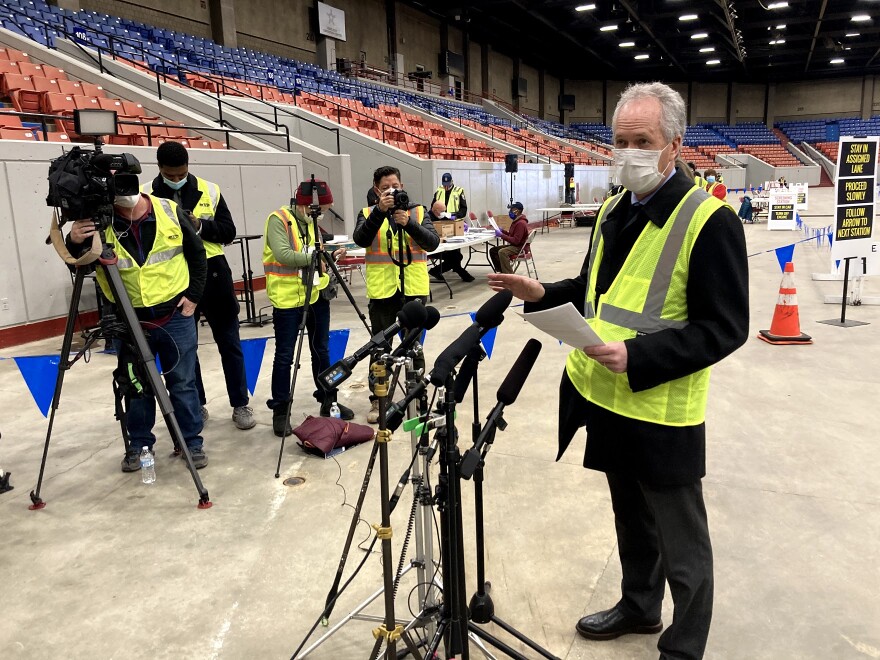A patient with the COVID-19 variant that originated in the United Kingdom was identified in Louisville on Monday.
Louisville Metro chief health strategist Dr. Sarah Moyer said it is the first known case of B117 in the city. The strain may not result in more severe symptoms, but it does spread more quickly, she said.
“Before, if you would’ve infected one or two people if you had COVID, now it’s a greater number, like four or six,” Moyer said.
That is the only known case in Louisville so far. Moyer recommended that residents continue to follow coronavirus mitigation guidelines. Vaccines could still protect against new variants of COVID-19, but most Louisville residents are not yet vaccinated.
Moyer reported 2,202 new COVID-19 cases in Louisville over the past week. It’s the lowest weekly total since November, although deaths remain high, with 37 reported over the last week.
But with the discovery of the new variant in the local population, Moyer cautioned that the case count trajectory could change.
“Just know that between that, the Super Bowl and people tired of staying home, these numbers can change direction at any minute, so we can’t let our guard down,” she said.
Mayor Greg Fischer said the city is wrapping up the first round of vaccines for Jefferson County Public School teachers.
All teachers who signed up for the vaccine will have received their first shot by the end of Tuesday, he said. Fischer said this is an important step in getting public schools back in session as soon as possible.
Close to 100,000 vaccines have been administered in the city, and Fischer said he expects that to ramp up in the coming weeks.
“While we’re in a constrained supply situation right now, we expect in seven or eight weeks or so that it’s really going to loosen up for us,” he said. “Of course, we’re planning on that loosening up right now, so we’ll be ready for that.”
Vaccine distribution so far reflects racial disparities in the city. Despite comprising 22% of Louisville’s population, Black residents only account for 11% of all vaccine doses administered. White people make up 71% of the population but have received 81% of the doses.
T Gonzales, director of the Center for Health equity, said the difference is due in part to historical racial inequities in health care.
“Black communities and populations within this country have suffered some great injustices when it comes to medicine and the health care industry,” Gonzales said. “And that leads to persistent mistrust. That is certainly understandable.”
Nearly 300 Louisvillians are currently hospitalized with COVID-19, 74 are in the ICU, and 49 are on ventilators.


